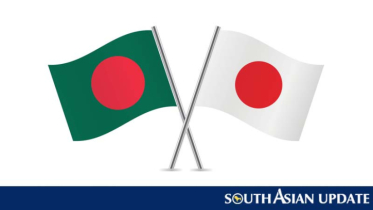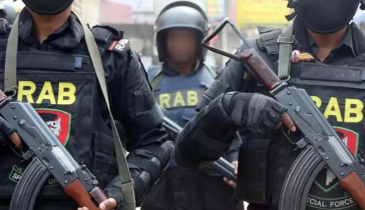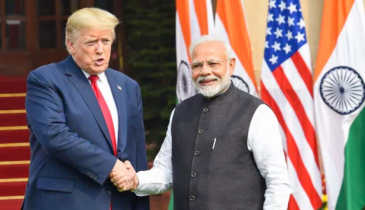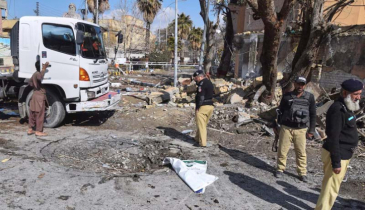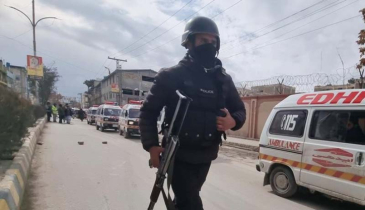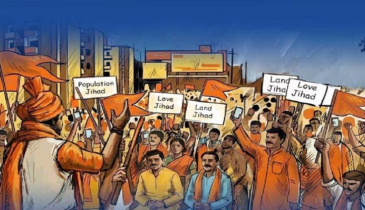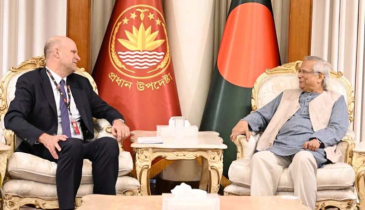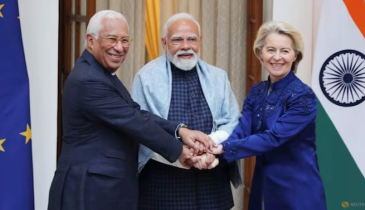India's deportation drive draws outcry over forced muslim expulsions to Bangladesh
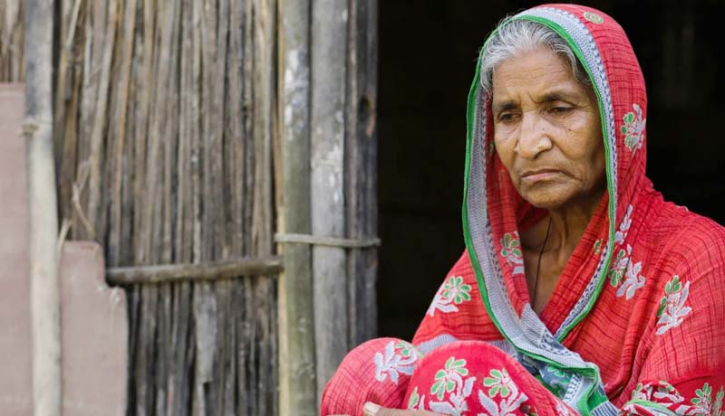
India is continuing its drive to deport alleged 'illegals' into Bangladesh, targeting primarily Muslim people and often forcing them out of the country at gunpoint with no legal processes.
According to the Washington Post report, Indian authorities have been rounding up individuals suspected of being “illegal immigrants,” often without due legal process. Many of the deportees claim to be Indian citizens, but say police destroyed or confiscated their identification documents before forcibly removing them to Bangladesh. In numerous cases, they were reportedly expelled at gunpoint, with no opportunity to prove their citizenship.
One of the most harrowing stories is that of Hasan Shah, a 36-year-old waste picker from Surat in Gujarat. In late April, he said Indian police officers entered his home early in the morning, blindfolded him, tied his hands, and transported him to a boat headed for Bangladesh. After three days at sea, Shah claims he was told at gunpoint to jump overboard near the Bangladeshi coast. “If you look back, we’ll shoot you,” he recalled being warned.
Shah swam to shore and was later rescued by the Bangladeshi coast guard, who confirmed his arrival and transferred him to the border town of Satkhira. He now finds himself stranded in a country he has no ties to, unable to reunite with his wife and four children back in India. Shah insists he was born in Gujarat and his family hails from West Bengal, not Bangladesh. His mother has provided Indian-issued documents—two national ID cards, a voter registration certificate, and a marriage license—which The Post verified. However, Shah says police still hold his mobile phone, which is needed to verify those documents through India’s digital authentication system.
His ordeal is just one among many. Since early May, at least 1,880 people have been deported to Bangladesh, according to confidential Bangladeshi government records cited by The Post. Of those, at least 110 were reportedly identified by Bangladeshi border officials as Indian nationals and subsequently returned. It remains unclear how many others might have valid claims to Indian citizenship but were unable to prove it under pressure.
The deportation wave gained momentum following a deadly militant attack in April in Pahalgam, a resort town in Indian-administered Kashmir, where 26 people were killed. In the aftermath, anti-Muslim sentiment surged, and Gujarat’s Home Minister Harsh Sanghavi vowed to “remove every infiltrator.” What followed were widespread raids, especially in Muslim-majority slums and labor camps, where residents reported home demolitions, arbitrary arrests, beatings, and the destruction of citizenship documents.
The crackdown has been most severe in the northeastern state of Assam and Gujarat in the west—both governed by the Bharatiya Janata Party (BJP), led by Prime Minister Narendra Modi. Critics say the BJP’s Hindu nationalist ideology has fueled state-backed discrimination and repression against the Muslim minority.
The Washington Post interviewed more than 50 individuals affected by the deportations, including some who were detained without warning or legal recourse. Many described the same pattern: homes raided in the early morning, documents seized or dismissed as fake, and forced removals under the threat of violence.
One video obtained by the newspaper shows an elderly woman left alone at a Bangladeshi border post, pleading to remain in India. While she was eventually readmitted, her family says she has since vanished without a trace.
Diplomatic tensions are growing between New Delhi and Dhaka as Bangladesh continues to raise concerns over what it describes as illegal deportations. The Bangladesh High Commission in India confirmed ongoing diplomatic exchanges, but no resolution has yet been reached.
Despite mounting evidence and international attention, India’s Ministry of External Affairs and the Border Security Force have not responded to multiple requests for comment.
Human rights groups are now calling on the international community to investigate the deportations and pressure India to uphold basic legal protections and human dignity, especially for marginalized populations caught in the political crossfire.
.png)


